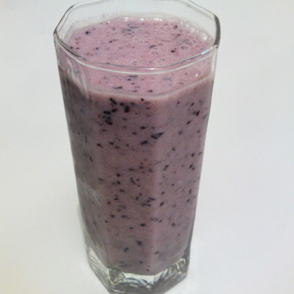
Vitamins
Vitamin A - Overdosage, Toxicity, Interactions and Cautions
Vitamin A sub-menu
Date reviewed: 5 July 2015 | Date updated: 5 July 2015
Toxicity
Vitamin A is toxic in large doses. To avoid vitamin A toxicity, either take the recommended daily intake of Vitamin A or take Betacarotene instead.
Vitamin A toxicity is known as also known as hypervitaminosis A.
Vitamin A toxicity can occur due to excessive intake of vitamin A over a short period (acute toxicity), or higher than normal intake of vitamin A over a long period, where levels of vitamin A build up over time and are not excreted by the body (chronic toxicity).
While acute vitamin A toxicity can be far more dangerous than chronic vitamin A toxicity, both are bad for your health. If you suspect you have had too much vitamin A, see a doctor immediately.
Overdosage
Symptoms of overdosage in children are:
- bone pain
- fontanelle bulging (the soft spot on an infant’s skull)
- irritability
- lethargy
- loss of appetite
- stunted growth
Symptoms of overdosage in adults are:
- blurry vision and headache
- diarrhoea and vomiting
- drowsiness and loss of appetite
- hair loss
- irritability
- lethargy
- skin irritation
Cautions
Certain people should not take high vitamin A supplements without first consulting their doctor for advice:
- Women who are pregnant - women who are pregnant should not take more than the upper tolerable limit of vitamin A due to the risk on the unborn foetus - high levels of vitamin A supplements could cause birth defects
- Women who are breastfeeding - women who are breastfeeding need to consult their doctor about vitamin A supplementation
- People who drink excessive alcohol - the liver may of a person who drinks excessive amounts of alcohol may be over-stressed from the processing of excessive amounts of alcohol and not be able to processes and eliminate vitamin A supplements, possibly causing toxicity effects from a build-up of vitamin A
Interactions
The following are the medications and supplements that are more likely to cause a reaction with vitamin A supplements:
- Antacids - any type of antacids can reduce absorption of vitamin A (as well as any of the other fat-soluble vitamins too)
- Calcium supplements - high levels of vitamin A supplements can reduce the effectiveness of calcium supplements if they are taken at the same time
- Cholestyramine and Colestipol - the medications Cholestyramine or Colestipol, which are used to lower LDL ("bad") cholesterol levels can reduce the rate of absorption of vitamin A from foods
- Neomycin - the antibiotic Neomycin, can reduce the rate of absorption of vitamin A from foods
- Oral contraceptives - the oral contraceptive can increases the amount of vitamin A in the body and could cause some toxicity, so excessive vitamin A supplementation is not recommended
- Retin-A - Retin-A, a medication used for treating facial acne is high in vitamin A, so people taking vitamin A supplements at the same time as this medication will increase their risk for vitamin A toxicity
- Vitamin E - vitamin E supplements work very synergistically with vitamin A supplements, but when the intake of vitamin E supplements is at very high levels, they can deplete the vitamin A stores in the liver and cause a deficiency
Comments
Nutrition
Health Tools
Most popular website content

-
Silica
Silica is a trace mineral, good for the skin, bones and teeth...more 
-
Labyrinthitis
Labyrinthitis is a disease of the inner ear, causing swelling and pain...more 
-
Calorie Intake
The recommended daily intake of calories is different for each age group and gender...more

 Basics recipes
Basics recipes Breakfast recipes
Breakfast recipes Dessert recipes
Dessert recipes Dinner recipes
Dinner recipes Lunch recipes
Lunch recipes Snacks recipes
Snacks recipes



